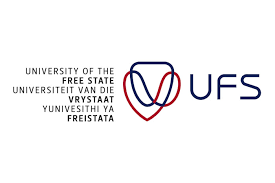University of the Free State: Making a difference with the No Student Hungry Programme
Food insecurity in the country is increasing, and with the dire impact of COVID-19 on the economy, the population faces high levels of hunger. As a result, many students in institutions of higher learning struggle to get meals, which threatens their academic success.
To help those students in need, the University of the Free State (UFS) No Student Hungry Programme (NSH), in conjunction with the Gift of the Givers, has contributed toward improving student success and well-being by donating food parcels.
“Gift of the Givers has been delivering these parcels to our Qwaqwa campus since 2020, then to the Bloemfontein Campus, and most recently to the South Campus, where 200 food parcels were donated. This makes a tremendous difference in the lives of our students and provides significant support to our office,” said Annelize Visagie, Senior Officer in the Food Environment Office within the Division of Student Affairs.
While all the NSH programme initiatives have some positive impacts, there are challenges. Queuing for food handouts is often seen by students as one of the most undignified experiences they could have. This includes the stigma attached to being seen as poor and hungry. However, to ensure that the students receive appropriate emotional support and do not feel humiliated about seeking help, the UFS has guaranteed that they receive counselling at the campus Student Counselling Development Centre. These professional services are also considered a learning experience for many students, reducing the stigma.
“The registrations and food collections are confidential since you can also apply digitally by email or an online application. Then we can discuss the ideal time for you to come and collect your package. These packages, including food and toiletries, are packed in bags from well-known grocery stores that we get from our sponsors, so it is impossible to identify whether they are from the programme or store-bought. The stigma is also fading because funded students now accompany their friends to collect their food parcels,” said Malefetsane Motsoeneng, Senior Residence Head Officer, Housing and Residence Affairs.
He added that the students appreciate this programme and would send him messages such as “Thank you so much. If it weren’t for this programme, I don’t know what I would’ve done; now I can focus on my studies.”
While not all needs are satisfied, the programme is making a difference in the lives of students and families by ensuring they have access to healthy meals. This is significant because some students travel as far as Dinaweng, a community 9km from the South Campus. This implies that many walk for about four hours every day to get an education.

